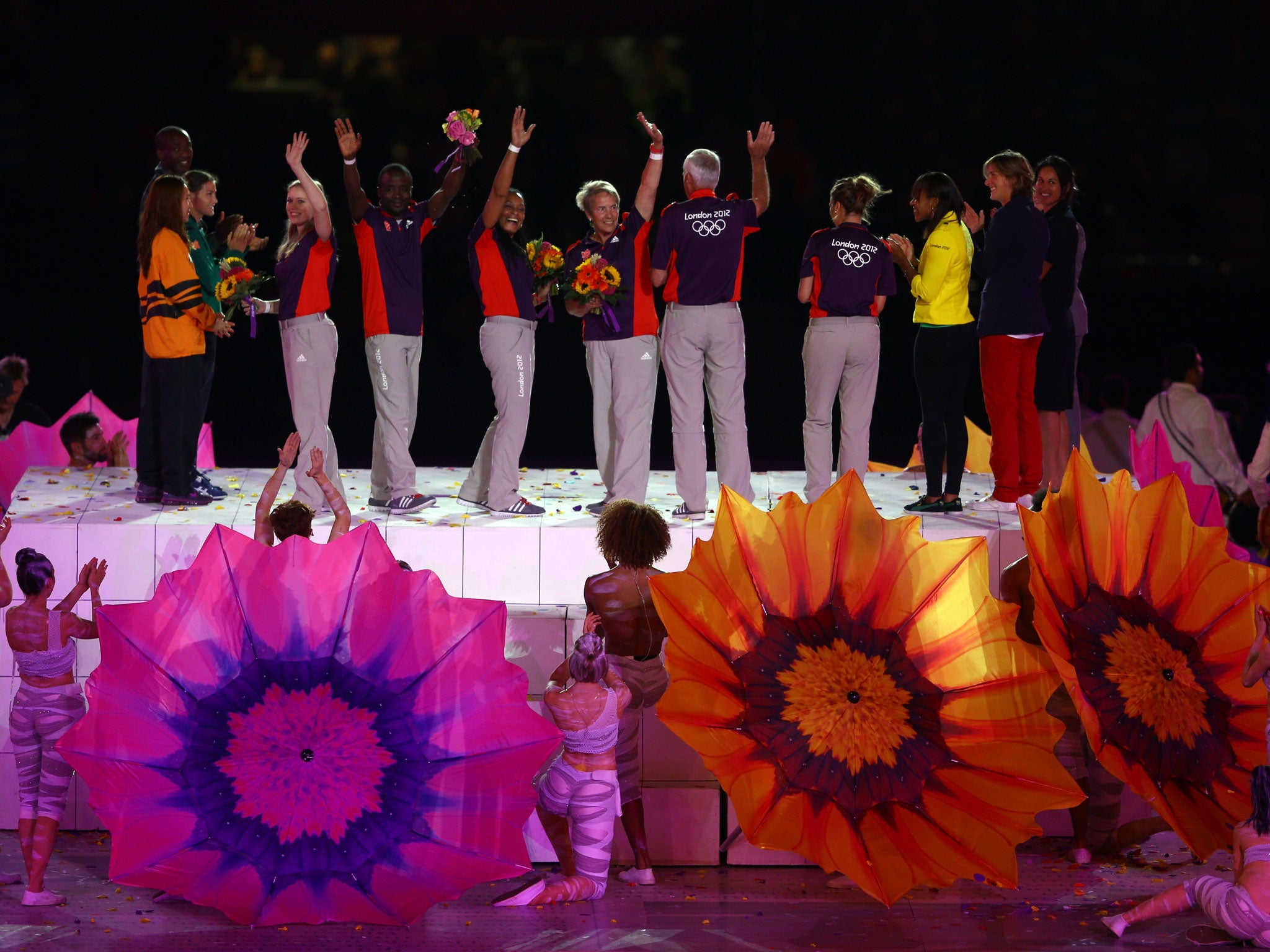Maria Miller: Cameron and Coe working to ensure Olympic legacy
Clearly people's attitudes towards disability were blown out of the water

Your support helps us to tell the story
From reproductive rights to climate change to Big Tech, The Independent is on the ground when the story is developing. Whether it's investigating the financials of Elon Musk's pro-Trump PAC or producing our latest documentary, 'The A Word', which shines a light on the American women fighting for reproductive rights, we know how important it is to parse out the facts from the messaging.
At such a critical moment in US history, we need reporters on the ground. Your donation allows us to keep sending journalists to speak to both sides of the story.
The Independent is trusted by Americans across the entire political spectrum. And unlike many other quality news outlets, we choose not to lock Americans out of our reporting and analysis with paywalls. We believe quality journalism should be available to everyone, paid for by those who can afford it.
Your support makes all the difference.As we prepare for the curtain to fall on 2012, I am sure I won't be alone in thinking back to the halcyon days of the summer and glorious memories of the Olympic and Paralympic Games. With the Games delivered on time and under budget, 185 medals won by Team GB, almost a quarter of a million people applying to be Games Makers and the entire country benefiting from a renewed sense of national pride, the summer was an enormous success story.
But that success cannot be judged solely on the basis of what happened in 2012. After all, we were awarded the Games in 2005 after Seb Coe made a very clear promise to deliver a lasting legacy from London 2012 and, most importantly, pledged to "inspire a generation".
The inspirational effect of this year's Games is beyond any doubt. No one could fail to be touched by the beaming smile of Mo Farah as he won his second gold, the joy of Jess Ennis (below) as she crossed the line in the 800m, the final event of her gruelling heptathlon, or the delight of Ellie Simmonds, poster girl of the Paralympics, as she picked up her fourth medal of the Games.
Millions of people were encouraged to get involved. Figures show that 900,000 more people – including 600,000 women – are now taking part in sport and physical activity than a year ago, and over 12,000 schools participated in this year's School Games.
We are delivering a sporting legacy through our continued funding of both community and elite sport. Just two weeks ago, UK Sport set out how they will invest an unprecedented £347 million in elite sport in the build-up to Rio 2016 – with the express ambition of being the first host country to go on and win more medals at the next Games. The day before, Sport England committed £493m to driving up grass-roots participation. The majority of this money will be targeted at those aged 14 to 25, reinforcing our commitment to inspire a generation.
The transformation of a large part of East London is perhaps the most tangible aspect of the Olympic legacy. All eight venues in the Olympic Park should have a settled future next year, and some will be places where our future Olympians will train and practise.
In 2017 the Olympic Stadium hosts the World Athletics Championships but, buoyed by memories of the Paralympics, I am most looking forward to the Paralympic equivalent – the IPC World Championships – which will also take place there in 2017. Clearly people's attitudes towards disability have been blown out of the water, and for the first time the Paralympics received similar coverage and attention to the Olympics. We should be proud that it was in Britain – the birthplace of the Paralympic movement – that this happened. Now we must capitalise on the change in attitude and ensure we encourage disabled sport.
The volunteering legacy, built on the shoulders of the 70,000 Games Makers who gave their time so generously, is being developed and the Join In initiative has already attracted hundreds of thousands of people, many of whom have never volunteered before.
And, of course, there is the economic legacy that the Games provided. New jobs, new business opportunities and increased tourism have all played their part, and in total we stand to deliver an economic impact of some £13bn over the next few years off the back of this summer. The Government's GREAT campaign, promoting the best of Britain to the world, is focused on making sure we derive all the investment and tourism benefits we can from our hosting of the Games.
The "Legacy Games" was a concept born in Singapore when we were awarded the Olympics, and the need to create a lasting legacy is understood at the very highest levels of Government. I am working closely with both the Prime Minister and Lord Coe on our far-reaching plans.
We believe we are on the right path and we have the backing of the International Olympic Committee, who said we have created a "legacy blueprint" for future hosts.
When closing the Paralympic Games, Lord Coe said we stamped three famous words on the London 2012 Games: "Made in Britain". I am confident that we will be able to use the same words to describe the delivery of our Olympic and Paralympic legacy in the years to come.
Maria Miller is the Culture Secretary
Join our commenting forum
Join thought-provoking conversations, follow other Independent readers and see their replies
Comments